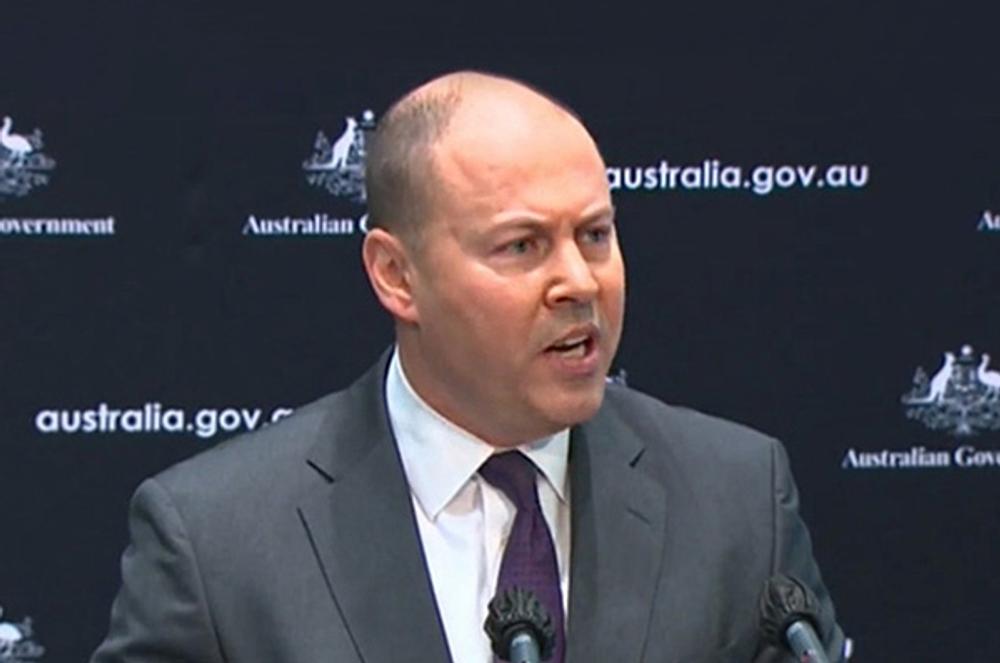The McGowan government said international students could start studying here, because they would automatically be granted work visas immediately after arrival, so there was no need to pay their first week's rent. However there is a catch. They have until Saturday to arrive or they miss out if they want to study in Western Australia.
Corruption and Abuse in Police Forces
Widespread corruption plagues police forces
Police corruption is a widespread issue that affects police forces all around the world. In Australia, this issue has been particularly prevalent in recent years, with several cases of high-profile police corruption making national headlines. As always, the fish rots from the head down, and police corruption is often caused by abusive and corrupt officers at the top of the chain of command.
What is police corruption?
Police corruption is a growing problem. Sometimes officers take bribes to get special favours or to look the other way. Sometimes it is officers who cover for crimes as though they were committing them themselves. Corruption has been known to reach all the way back into Police Department history, since the first police force in Australia was formed. This corruption problem can be very dangerous to everyone, because officers will stop doing their jobs and will not enforce the law as they are supposed to do. Corruption can also be destructive and cause a lot of economic loss, since there will be less job opportunities and fewer resources for the people in a police force’s jurisdiction.
There is very little that the public can do to stop this type of corruption except call it out where it is found. But who can you effectively lodge a complaint with? Who controls the controller and are they potentially corrupt as well? With multiple official police lists (both federal and state) that have 90 year suppression orders in place containing names of suspected pedophiles in Australia, ranging from police to judges to politicians and even former Prime Ministers of Australia, how can anyone have confidence that they will find the right person to speak to, and even if they do, how can people have confidence that these people wont be blocked at every turn or coerced (or ordered)n to drop the case?

Corrupt acts
Police officers have various opportunities to gain personally from their status and authority as law enforcement officers. Officers who receive free drinks, meals, or other gratuities, because they are police officers, whether intentionally or unintentionally, are seen as corrupt. Officers will demand or accept payment for criminal offences, to overlook a crime or a possible future crime. Theft and burglary is when an officer or department steals from a suspect, victim, or corpse. Theft, burglary, and racketeering are types of corruption that are considered the most serious illegal acts committed by police officers. Officers can steal property from the department's evidence room or property room for personal use. Shakedowns are when an officer is aware of a crime and the violator but accepts a bribe for not arresting the violator. Officers can also fix tickets, which are when an officer falsifies the results of a traffic stop or arrest. The "frameup" is when police officers plant or add to evidence. Perjury is when an officer lies to protect other officers or themselves in a court of law or a department investigation. Internal payoffs are when the prerogatives and prerequisites of law enforcement organisations, such as shifts and holidays, are bought and sold.
Behaviour
The corruption of police officers can be attributed to a department's subculture. A subculture is a group of individuals within a culture that share the same attitudes and beliefs. Police officers within the department have a shared set of values, morals, and beliefs. The officer's early exposure to the police culture as well as their perception of how police officers behave, the discretion of the police, and the morals of the police. As officers gain experience, they're meant to learn to discriminate between right and wrong. The social character of the police officer is changed when he becomes part of the occupational culture. The police culture can be quite racist, and shot through with assumptions about the criminal tendencies of certain groups of society, or the competence of fellow officers from various backgrounds. The corruption of police officers can occur when the officer makes a choice that gives him a benefit or gain, whether real or perceived, from his position as an officer.
Top-down discipline
Top-down discipline is the process by which a police department's leadership attempts to combat corruption. The top-down approach is generally viewed as more effective than that of the bottom-up approach, because the top-down approach allows officials to control the actions of their subordinates. However, some argue that a top-down approach is more effective in containing corruption, because top-down management is more likely to "hold the individuals accountable for their actions." Top-down discipline is also easier to implement than bottom-up discipline, which is why the top-down approach is more common in more developed nations.
The top-down approach is usually implemented in the form of the use of internal disciplinary hearings instead of criminal courts. This process may entail replacing individual officers, mid-level leadership, or asking for a resignation by the department chief. Disciplinary actions may be taken depending on the severity of the act. However, typically, the department's leadership and actions are brought to the attention of the media and the department is negatively portrayed in the media.
General distrust of police in the community
The NSW Police Force, for example, has been accurately accused of using excessive force, especially against recent freedom protestors. In. Canberra, Australia's national capital, the police deployed long-range acoustic devices (LRAD) against the rally participants resulting in grotesque injuries in many.
LRAD is an acoustic hailing device (AHD), sound cannon and sonic weapon developed by Genasys. It has been used mostly as a long-range communications device, but law enforcement and military use it as a stealth attack weapon. For corrupt police they use it under the guise of cowd control despite the evidence of damage to human health when used. the LRAD devices have an extremely high decibel capacity (up to 160 dB).
Other uses have included for negotiations in siege situations to deal with piracy at sea; for mass notification during natural disasters or other emergencies; and by defence forces, including several navies.
Rotten apple theory
In the police profession, a "rotten apple" theory is a situation where a small group of officers engage in corruption and the department as a whole is less than reputable. The theory is that a small group of corrupt officers, acting under the guise of "good cops", will bring down the reputation of the entire department.
The theory suggests that not all cops are bad, and in fact only a very small number are corrupt. However it is that small number that pollutes the rest of the police force and taints the way they are perceived. A good example of this is Sydney financier Ian Lazar who has fought off and won more than 30 false prosecutions by NSW Police. The type of corruption in many of these cases include where evidence that would have exonerated Lazar was ignored, evidence was manufactured against him and unreasonable, draconian requests were made by the police to the courts to restrict Lazar's economic abilities.
Reduced effectiveness
Police corruption not only generates distrust among the public, but undermines the criminal justice system as a whole. In some cases, corrupt officers can actually reduce the effectiveness of a department. In a 2011 study, researchers at Indiana University found that corruption among police officers caused the police departments they studied to decrease their response time by as much as 40%. In other cases, police officers who have succumbed to corruption can even become the target of other officers. The officers who are most prone to corruption are often those with access to resources that are not available to the general public, such as money, weapons or information. These officers have the potential to create a "black market" for information, weapons and money. Such officers can also use their access to information, money and weapons to intimidate potential whistle blowers and critics.
The police corruption undermines the whole justice system because it discredits the honesty of the officers working in a criminal department. The respect and credibility of the police officers in a department where corruption was discovered is diminished, and even if the testimony they provide at court is an accurate recollection, a prosecutor or judge may choose to ignore it because of their affiliation with a department that is being investigated or shut down.
He exposed police corruption, now cops won't leave him alone
Other News


State political parties have revealed alleged details of an exchange between Former NSW Premier Gladys Berejiklian and a NSW government minister. Berejiklian says Morrison is "a complete psycho" and "a horrible, horrible person"

Treasurer Josh Frydenberg warns states never to count on the federal government to help them recover from the Omicron wave. This means states now have to take greater responsibility and do the heavy lifting that the federal government has largely been doing throughout the global SARS-CoV-2 pandemic.
Sydney Morning Herald Stories
US